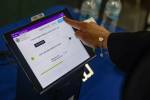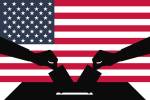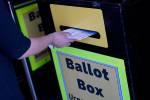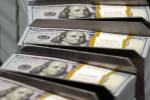EDITORIAL: Ballot selfies
The ubiquitous selfie craze has infiltrated the ballot box. And a federal appeals court is now pondering whether allowing such photos in the voting booth could lead to election fraud.
At issue is a 1979 New Hampshire law that makes it illegal for voters to show their marked ballots to other voters. New Hampshire legislators amended the law in 2014, the Wall Street Journal reports, to also block voters from taking a digital image or photograph of a marked ballot and “distributing or sharing the image via social media.”
The state argues the law will discourage vote-buying schemes that rely on “ballot selfies” as proof of participation.
New Hampshire Secretary of State William Gardner, whose office pushed for the ban, acknowledges that there is “little evidence” of such activity, and a lower court in New Hampshire pronounced the law unconstitutional in August 2015. Still, the state appealed the ruling to the 1st U.S. Circuit Court of Appeals in Boston.
The state argues, the Journal writes, that the law ensures the “purity and integrity of our elections by protecting the longstanding tradition of the secret ballot.” But nobody is forcing anybody to reveal their election choices. Instead, this involves voters who voluntarily make their preferences known.
The American Civil Liberties Union of New Hampshire, points out the statute “fails to realize the critical importance of online political speech under the First Amendment as well as to American culture.”
The law has already been used to harass a handful of voters.
The Journal reports that Andrew Langlois faced prosecution when, rather than vote for any of the Republican U.S. Senate candidates in the 2014 primary election, he wrote in the name of his dead dog instead. He then took a selfie of the ballot and posted the image on Facebook, sparking an investigation.
Mr. Langlois said he thought someone was playing a joke on him when he received a phone call from the state’s attorney general’s office informing him of the probe. He faces a fine of $1,000 if the law is reinstated.
The investigation into Mr. Langlois’ protest vote is on hold pending the court’s ruling.
The law is a solution in search of a problem, not to mention an obvious infringement of the First Amendment. If prosecutors can prove someone took a picture in order to verify a “vote for sale” scheme, they already have statutes under which they may bring a case. Otherwise, authorities need to let sleeping dogs — as well as selfies featuring the names of dead dogs — lie.























